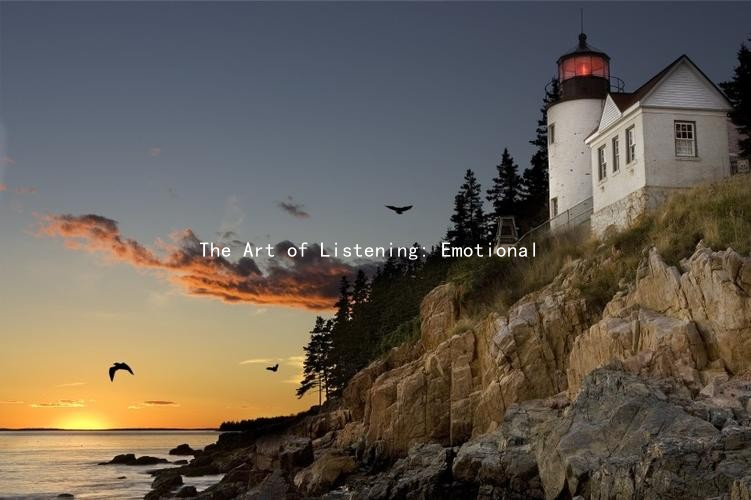The Art of Listening: Emotional Support Techniques for Better Understanding
In the realm of romantic relationships, effective communication serves as a cornerstone for deep understanding and emotional connection. One of the most crucial yet often overlooked skills in this domain is the art of listening. While speaking and expressing oneself is vital, the ability to listen actively can transform interactions and foster a supportive environment for both partners. Here, we delve into emotional support techniques that enhance your listening abilities, leading to better understanding and a stronger bond in your romantic life.
Active listening is more than just hearing words; it encompasses fully engaging with your partner’s thoughts and feelings. Start by creating a comfortable atmosphere where your partner feels safe to express themselves. This can include minimizing distractions, making eye contact, and using open body language. Such non-verbal cues indicate your genuine interest in what they are saying.
When your partner speaks, focus on their emotions behind the words. Reflect on their feelings by paraphrasing or summarizing what you’ve heard. For example, if your partner shares a frustrating situation at work, you might respond with, “It sounds like you felt really overwhelmed by that project.” This not only shows that you are listening but also validates their emotions, making them feel understood and appreciated.
As you engage in this dialogue, be mindful of your responses. Avoid jumping in with solutions or advice unless they explicitly ask for it. Often, people seek emotional support rather than practical solutions. By resisting the temptation to fix their problems, you allow your partner to express themselves fully, paving the way for a deeper emotional connection.
Additionally, ask open-ended questions to encourage further sharing. Questions such as “How did that make you feel?” or “What do you think would help you cope?” invite your partner to delve deeper into their thoughts and feelings, facilitating a more comprehensive understanding of their experiences. This practice not only enhances your connection but also empowers your partner to engage in self-reflection.

Another vital technique in emotional support is practicing empathy. Put yourself in your partner’s shoes and try to experience their emotions from their perspective. You might say, “I can only imagine how difficult that must be for you.” This statement demonstrates that you are not merely acknowledging their feelings but are also willing to understand and share in their emotional experience.
Moreover, it is essential to be patient and allow silence during conversations. Sometimes, your partner may need a moment to gather their thoughts or emotions. Resisting the urge to fill the silence with words can lead to more profound insights and facilitate a more profound connection.
Remember that listening is an ongoing practice. Relationships evolve, and so do individual needs and emotions. Demonstrating consistent willingness to listen can significantly improve your relationship quality. Make it a habit to have regular check-ins where both partners can openly express their feelings and concerns in a supportive environment.
In conclusion, the art of listening is a powerful tool in nurturing romantic relationships. By employing emotional support techniques such as active listening, validating feelings, asking open-ended questions, and practicing empathy, you can deepen your understanding of your partner and create a more supportive and fulfilling relationship. Ultimately, investing in your listening skills not only enhances communication but also strengthens the emotional foundation necessary for lasting love.





